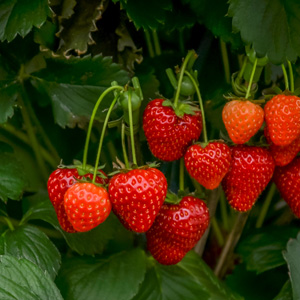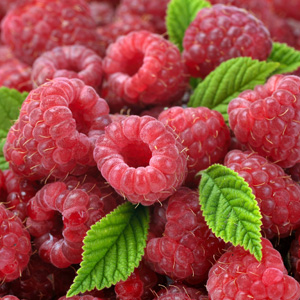Companion planting is the practice of strategically pairing plants to mutually benefit one another.This is an age-old gardening technique that dates back at least 10,000 years. Companion planting offers many benefits including improved growth, pest deterrence and enhanced soil...
Companion planting is the practice of strategically pairing plants to mutually benefit one another.This is an age-old gardening technique that dates back at least 10,000 years. Companion planting offers many benefits including improved growth, pest deterrence and enhanced soil health. When it comes to berries, this approach can yield particularly sweet rewards.
Understanding Companion Planting With Berries
Many savvy gardeners swear by companion planting as a way to harness natural relationships in the plant world, leading to organic, sustainable and often more productive gardens.
When it comes to berries, it’s important to know which combinations will give the best results. Each of these fruits has unique growing conditions and requirements, and we’ll delve into some of the most common pairing questions and explain their compatibility in a garden setting.
Specific Berry Pairings
Can raspberries and blackberries be planted together?
Raspberries and blackberries can be planted together as they share similar growing conditions and both belong to the Rubus genus. However, keep an eye on their growth as they can become quite vigorous and may compete for space. Raspberries and Blackberries have different pruning needs so if grown together it is important to note the correct pruning time for the individual Raspberry types (ie: Floricane or Primocane varieties).
Can you grow blueberries and raspberries together?
While both blueberries and raspberries are delicious, they have distinct soil pH requirements. Blueberries thrive in acidic soil, whereas raspberries prefer slightly acidic to neutral soil. If planted together, soil amendments will be necessary to meet both their needs so planting these two together is not really a good pairing.
Can blueberries and blackberries be planted together?
Both blueberries and blackberries require acidic soils, making them potentially compatible. One of the main benefits of growing these berries together is that blueberries will encourage pollinators, which benefits blackberries. However, spacing is crucial as blackberries can
overshadow smaller blueberry plants.
Can blueberries and strawberries grow together?
Blueberries and strawberries can be planted together with some success. While blueberries enjoy more acidic soil, strawberries are more forgiving and can adapt. The leaves of the
strawberry plant can provide excellent shade for the roots of blueberries and reduce competition for space with weeds.

Strawberry Sugarbaby
Can you plant strawberries, blueberries and raspberries together?
Planting all three of strawberries, blueberries and raspberries together can be challenging due to their varying soil and space requirements. While it’s possible, it would necessitate careful planning, soil amendments and diligent maintenance.
Can You Plant Raspberries in a Pot?
Raspberries, heralded as one of Australia’s most beloved berries, offer a delightful blend of sweet and tart. Their popularity isn’t just rooted in their taste; they’re also notably versatile, thriving even in container gardens. While pairing raspberries with blackberries and strawberries is a popular choice, for urban dwellers or those with limited garden space, pot cultivation
becomes a game-changer.

Raspberry Summer Delight
To successfully grow raspberries in a container, select a large pot, ideally at least 60cm in diameter. Ensure it has adequate drainage to prevent root rot. Use a rich potting mix combined with compost for enhanced nutrition. Remember to position the container in a location with full
sunlight and provide regular watering, but avoid letting the soil become too soggy.
Are Raspberries Climbing Plants?
While raspberries aren’t traditional climbers like some plants, they do benefit from a trellis or support system. This helps them grow upright, facilitates better air circulation, and makes the harvesting process significantly more accessible. With proper care, your raspberry plants will
thrive and produce abundant fruit.
How long do Raspberry Plants Take to Fruit?
Raspberry plants, while relatively easy to cultivate, require patience; it often takes a year or two before they start bearing fruit. If you are unsure when to plant raspberries, the best time is during the cool months of late autumn. As they grow, ensure they receive ample sunlight and
consistent moisture.
For a detailed explanation on how to plant raspberries, take a look at our extensive growing guide.
Order Your Berry Canes In Winter From Garden Express
Companion planting with berries can elevate the productivity and health of your garden, all while offering delightful and diverse flavours. Understanding which berries complement each other is essential for achieving optimal growth and fruit production.
Ready to begin your berry gardening journey? Dive into Garden Express’s extensive catalogue today. For any questions or tailored gardening advice, don’t hesitate to reach out via our contact form, or give us a call on 1300 606 242.
The post Companion Planting Berries: Exploring the Best Berry Pairings for Your Garden appeared first on Garden Express.


